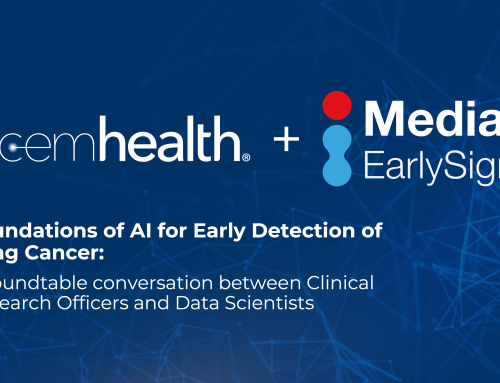This Week in Clinical AI, Episode 7 (9/19/23)
In This Week in Clinical AI, Episode 7, Jeremy and Simone chat about CU Boulder football, ChatGPT’s impact on medical publications, using AI to identify sleep apnea, and a new way for AI to improve empathy toward those at the end of their life.
This Week in Clinical AI Episode 7 Topics:
- 0:00 Introduction
- 1:12 Topic 1: ChatGPT Surpasses 1000 Publications on PubMed: Envisioning the Road Ahead
- 2:30 Topic 2: NTUH uses AI to identify sleep apnea
- 4:22 Topic 3: OSF Innovation develops AI mortality predictor to help identify those who may benefit most from end-of-life care discussions
Mentions of Chat GPT in Medical Articles
The first study we will discuss is a fascinating analysis of the number of mentions of Chat GPT, an AI language model, in published medical articles. According to the study, in just nine months, there were as many mentions of Chat GPT in clinical journal articles as there were of Google in the first 14 years after its launch. This suggests a significant interest and excitement surrounding AI and its potential impact on healthcare.
The prominence of AI in healthcare is not limited to research articles. It has also become a popular topic among students at institutions like CU Boulder, where AI is a required subject in many syllabi. The integration of AI into the curriculum indicates its growing importance in the field of healthcare.
Predicting Sleep Apnea with AI
Sleep apnea is a prevalent sleep disorder that often goes undiagnosed or is challenging to diagnose. However, a study from Taiwan introduces a promising AI-based device that can predict whether patients have sleep apnea. Traditionally, diagnosing sleep apnea requires an overnight sleep study, which can be uncomfortable and burdensome for patients.
This new device offers a non-invasive alternative by analyzing a patient’s breathing patterns. By observing breaths taken in different ways, the device’s software can determine the likelihood of sleep apnea within just 10 to 15 minutes. This quick and accessible screening method allows healthcare providers to identify patients who may require further diagnostic tests or interventions to manage their condition effectively.
The implementation of such AI technologies is crucial in enhancing sleep apnea diagnosis and reducing barriers to care. Patients can receive timely interventions and treatments, leading to improved sleep quality and overall well-being.
AI for End-of-Life Care Planning
AI’s role in healthcare spans all patient care stages, including end-of-life planning. A recent study by OSF Healthcare stands out. Situated in Peoria, Illinois, it aims to identify patients more likely to die during hospitalization. They accomplish this by using AI models. These models utilize selective data points from electronic health records. This enables the AI to predict a patient’s risk of in-hospital death.
The significance of this study lies in its ability to prompt advanced care planning for high-risk patients. With an advanced care plan in place, patients, their families, and healthcare providers can make informed decisions about medical treatment, palliative care options, and align care with the patient’s wishes. By addressing end-of-life care proactively, patients can receive more personalized and comfortable care, while healthcare resources are allocated efficiently.
This Week in Clinical AI Episode 7 Wrap-Up
These studies underscore the increasing integration of AI in healthcare practices. The extensive mentions of Chat GPT in medical articles attest to the growing recognition of AI’s potential in revolutionizing healthcare. Likewise, the development of AI devices for sleep apnea screening and AI models for end-of-life care planning ensures that patients receive comprehensive care, diagnosis, and symptom management.
The impact of AI in healthcare is undeniable and will only continue to grow. By leveraging AI technologies, healthcare providers can enhance patient care, streamline processes, and ensure efficient resource allocation. Moving forward, responsible AI adoption is vital for healthcare stakeholders. Patient-centric care and ethical considerations must guide AI implementations. Healthcare’s future is unequivocally linked with AI. Utilizing this transformative technology, we can build a brighter, more efficient healthcare system.
Thank you for joining us on this week’s episode of This Week in Clinical AI. Make sure to stay tuned for future episodes on our blog, YouTube, and TikTok, as we continue to explore the exciting advancements in AI and its impact on healthcare.
